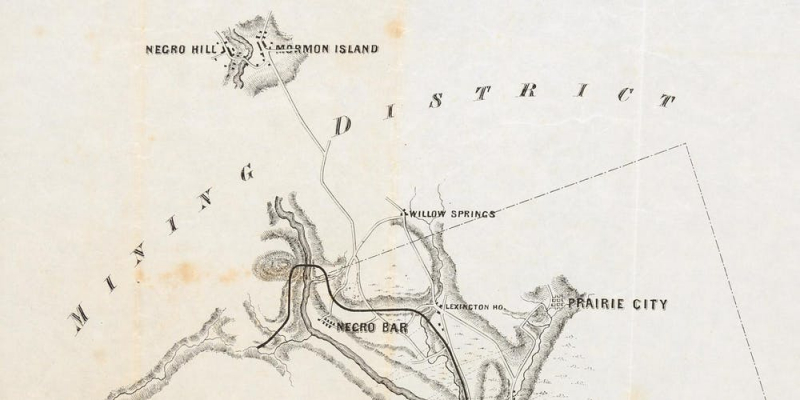From the Open-Publishing Calendar
From the Open-Publishing Newswire
Indybay Feature
2019 California Black History Month ~ Celebrating Pan African Migration
From Sutter’s Fort to Historic Coloma we must preserve and interpret the resilience of our African American family, showcase the salient contributions that impacted the establishment of the Great State of California, and most of all the Pan African perseverance opportunity at Negro Bar, California, established in 1849, today part of our California State Parks System.
Sacramento, CA ~ 2019 marks the 400th Commemoration of the arrival of Africans in the first permanent English Colony in North America highlighting the perseverance of Pan Africans from 1619 to the present.
We join the Association for the Study of African American Life and History (ASALH) to highlight the 400th Commemoration as an event of historic importance for ALL people, but especially those of Pan African ancestry. Each year ASALH establishes a Black History Theme. This commemoration speaks directly to ASALH’s selected annual Black History theme for 2019—“Black Migrations.”
The story of Africans in the English Colony of Virginia begins with the founding of the Colony in 1607, under the rule of King James I of England. In August of 1619, the first Pan African children, women and men who arrived on “pirate ship” from the Kwanza River in Angola to present-day Fort Monroe, in Hampton, VA.
John Rolfe, Secretary and Recorder General of Virginia, recorded the arrival of “20 and odd Negroes” in 1619. The first Pan Africans did not arrive at Ellis Island, Plymouth Rock, or Jamestown, but arrived as captured human cargo on the high seas during the transatlantic slave trade aboard the English privateer ship the White Lion, who had been captured from the slave ship San Juan Bautista in a fierce battle in the Bay of Campeche in the Gulf of Mexico.
Forced migration of Africans to the Virginia colony in 1619 reminds us that they came before the Mayflower (1620). By this commemoration, ASALH pays tribute to 400 years of the creative industry of a people who were kidnapped and brought unwillingly to these shores and who, with resolute African spirit, fought for human dignity and equality.
There have been several commissions created to commemorate this 400-year journey including the Federal legislation introduced by Congressman Bobby Scott titled “The 400 Years of African American History Commission Act,” H.R. 1242 – 115. (February 2018).
We seek to establish a formal Sacramento Pan African Heritage Commission to educate California and the global community about the early arrival of Pan Africans, free and enslaved, during the California Gold Rush Era (1840-1875.)
From Sutter’s Fort to Historic Coloma we must preserve and interpret the resilience of our African American family, showcase the salient contributions that impacted the establishment of the Great State of California, and most of all the Pan African perseverance opportunity at Negro Bar, California, established in 1849, today part of our California State Parks System.
We join the Association for the Study of African American Life and History (ASALH) to highlight the 400th Commemoration as an event of historic importance for ALL people, but especially those of Pan African ancestry. Each year ASALH establishes a Black History Theme. This commemoration speaks directly to ASALH’s selected annual Black History theme for 2019—“Black Migrations.”
The story of Africans in the English Colony of Virginia begins with the founding of the Colony in 1607, under the rule of King James I of England. In August of 1619, the first Pan African children, women and men who arrived on “pirate ship” from the Kwanza River in Angola to present-day Fort Monroe, in Hampton, VA.
John Rolfe, Secretary and Recorder General of Virginia, recorded the arrival of “20 and odd Negroes” in 1619. The first Pan Africans did not arrive at Ellis Island, Plymouth Rock, or Jamestown, but arrived as captured human cargo on the high seas during the transatlantic slave trade aboard the English privateer ship the White Lion, who had been captured from the slave ship San Juan Bautista in a fierce battle in the Bay of Campeche in the Gulf of Mexico.
Forced migration of Africans to the Virginia colony in 1619 reminds us that they came before the Mayflower (1620). By this commemoration, ASALH pays tribute to 400 years of the creative industry of a people who were kidnapped and brought unwillingly to these shores and who, with resolute African spirit, fought for human dignity and equality.
There have been several commissions created to commemorate this 400-year journey including the Federal legislation introduced by Congressman Bobby Scott titled “The 400 Years of African American History Commission Act,” H.R. 1242 – 115. (February 2018).
We seek to establish a formal Sacramento Pan African Heritage Commission to educate California and the global community about the early arrival of Pan Africans, free and enslaved, during the California Gold Rush Era (1840-1875.)
From Sutter’s Fort to Historic Coloma we must preserve and interpret the resilience of our African American family, showcase the salient contributions that impacted the establishment of the Great State of California, and most of all the Pan African perseverance opportunity at Negro Bar, California, established in 1849, today part of our California State Parks System.
Add Your Comments
We are 100% volunteer and depend on your participation to sustain our efforts!
Get Involved
If you'd like to help with maintaining or developing the website, contact us.
Publish
Publish your stories and upcoming events on Indybay.
Topics
More
Search Indybay's Archives
Advanced Search
►
▼
IMC Network



